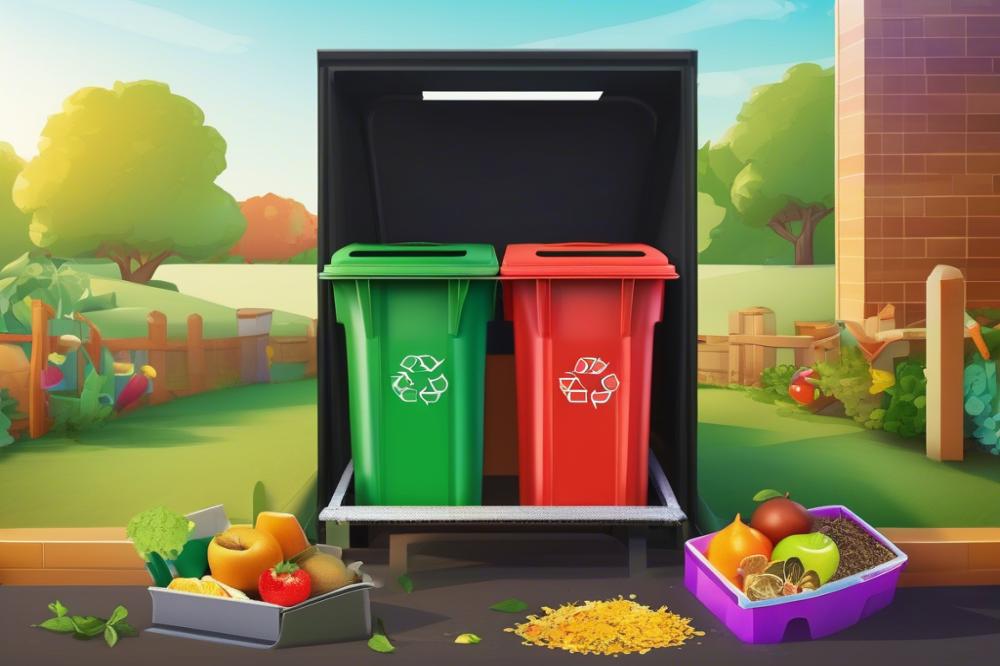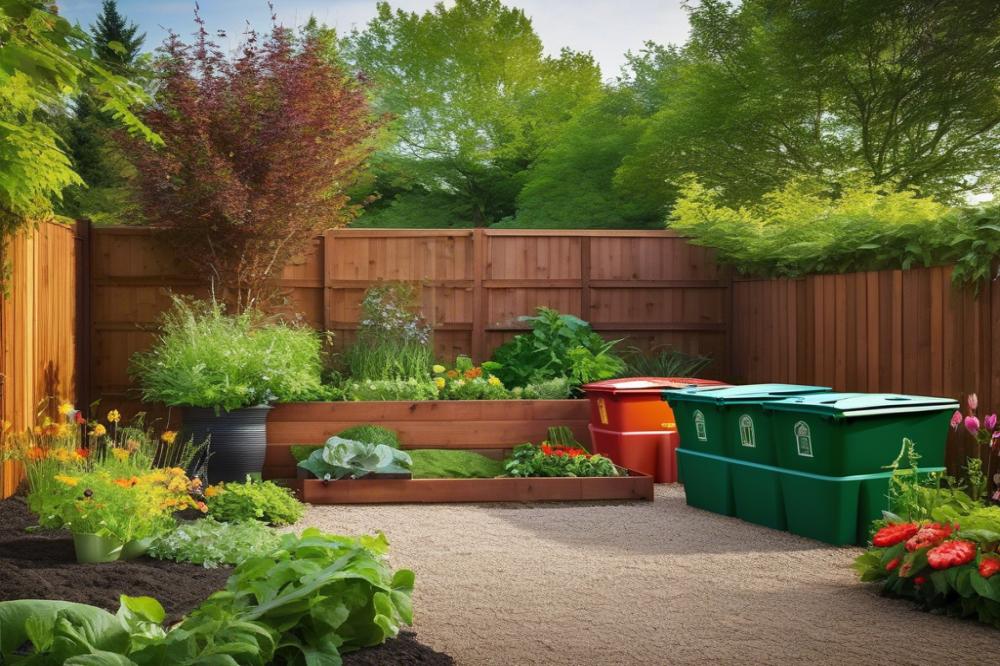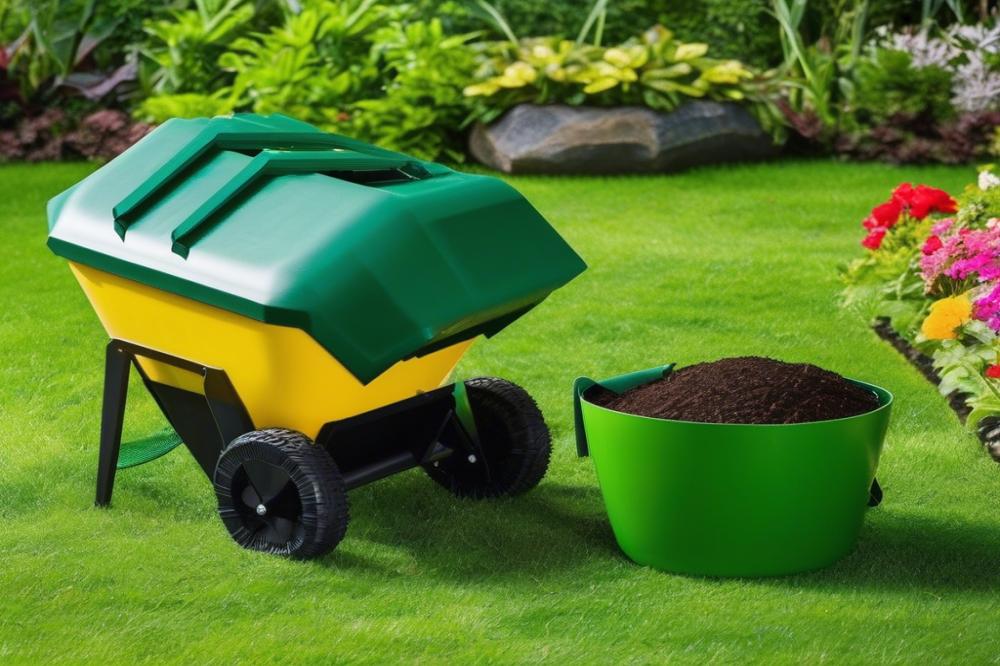Introduction
In our rapidly changing world, schools play a crucial role in shaping the values and behaviors of future generations. composting-bins”>composting bins serve as a powerful tool for teaching sustainable practices, allowing students to engage directly with eco-friendly initiatives. This hands-on learning experience transforms waste management into something tangible and exciting.
Educators can foster environmental education through practical activities like school gardening, where composting becomes part of the curriculum. Such lessons create a connection between students and their environment. Managing waste effectively not only reduces landfill contributions but also enriches soil health, allowing plants to thrive.
Moreover, introducing these composting bins encourages recycling habits early on. Students learn the value of repurposing organic materials, which nurtures their sense of responsibility. Engaging with the community adds another layer of depth to this experience. Schools can partner with local organizations, promoting wider awareness of sustainable practices outside the classroom.
The benefits of composting extend far beyond the school grounds. It develops critical thinking skills and ignites passion for environmental stewardship in young minds. By embracing this initiative, schools can empower students to become advocates for change, ensuring a healthier planet for generations to come.
Understanding Composting Bins
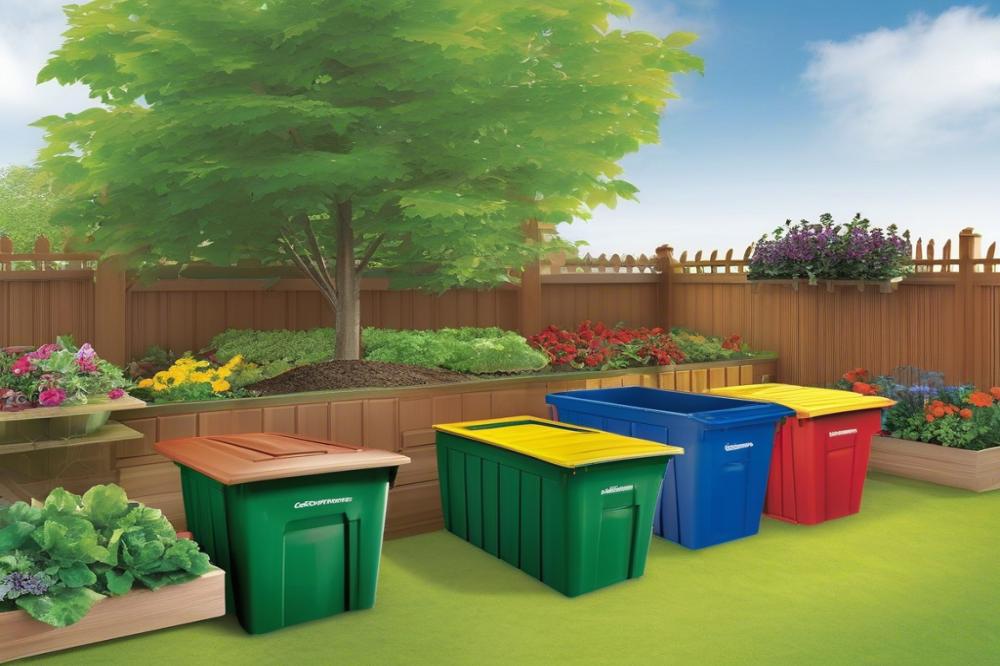

Composting bins are essential tools in any effort to promote sustainability at schools. These containers help turn organic waste into valuable compost. There are different types available. Among them, stationary bins and tumblers are the most common. Each type has its benefits, making them suitable for various school gardening initiatives.
Stationary bins sit in one place. They are simple and effective for larger amounts of organic material. Schools can use them for lunch scraps, yard waste, and classroom projects. Tumblers, on the other hand, are portable and easy to turn. The action of tumbling mixes the materials evenly. This can speed up the composting process, which is perfect for hands-on learning.
Using composting bins greatly impacts waste management. Schools play a vital role in reducing landfill waste. By composting, students can see the direct results of their efforts. This process not only reduces trash but also creates nutrient-rich material. Composting benefits the soil, making it healthier for plants to thrive. Teaching students about this eco-friendly initiative fosters environmental education.
The importance of these bins cannot be overstated. They encourage recycling practices. Moreover, students gain knowledge about the natural world and how waste can be transformed. Engagement in these activities can spark interest in sustainability. Community involvement is also enhanced when schools implement these practices. Parents and local organizations can join in, creating a larger impact.
Involvement with composting helps students connect with their environment. By taking part in the composting process, they learn responsibility. This hands-on experience builds valuable life skills. Plus, it promotes a sense of stewardship toward the planet. Schools that prioritize waste management through composting create an atmosphere of care and respect for nature.
Composting Benefits for Schools
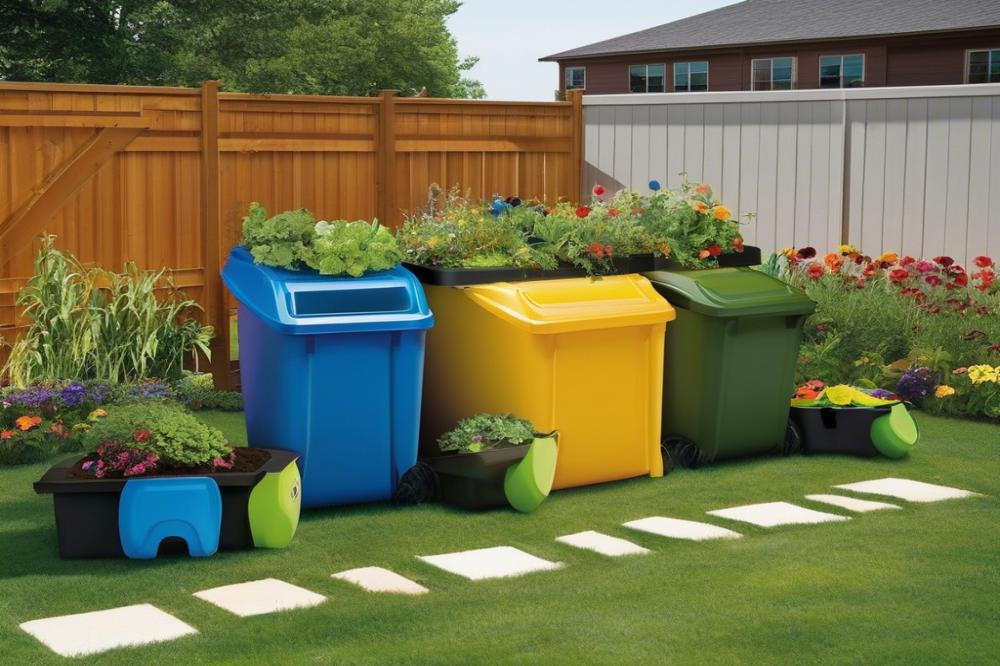

Composting offers significant environmental impacts that can transform school communities. By reducing waste, institutions play a vital role in lessening the burden on landfills. Many schools generate a lot of organic waste. When composted, this waste is returned to the earth rather than contributing to pollution.
Another benefit lies in nutrient enrichment for school gardening. Compost serves as a powerhouse of minerals and nutrients. This enriches the soil, promoting healthy plant growth in garden beds. Students can observe firsthand how composting improves soil health and supports vibrant ecosystems.
Utilizing composting bins as a teaching tool enhances environmental education. It provides hands-on learning experiences for students and fosters a deep understanding of eco-friendly initiatives. By participating, students become active contributors to waste management. Engaging with composting teaches them about recycling in a practical way.
Moreover, composting encourages student engagement. Organizing composting projects can involve the entire school community. This boosts collaboration among students, teachers, and parents. Community involvement is essential for fostering a culture of sustainability.
Implementing Composting Programs in Schools
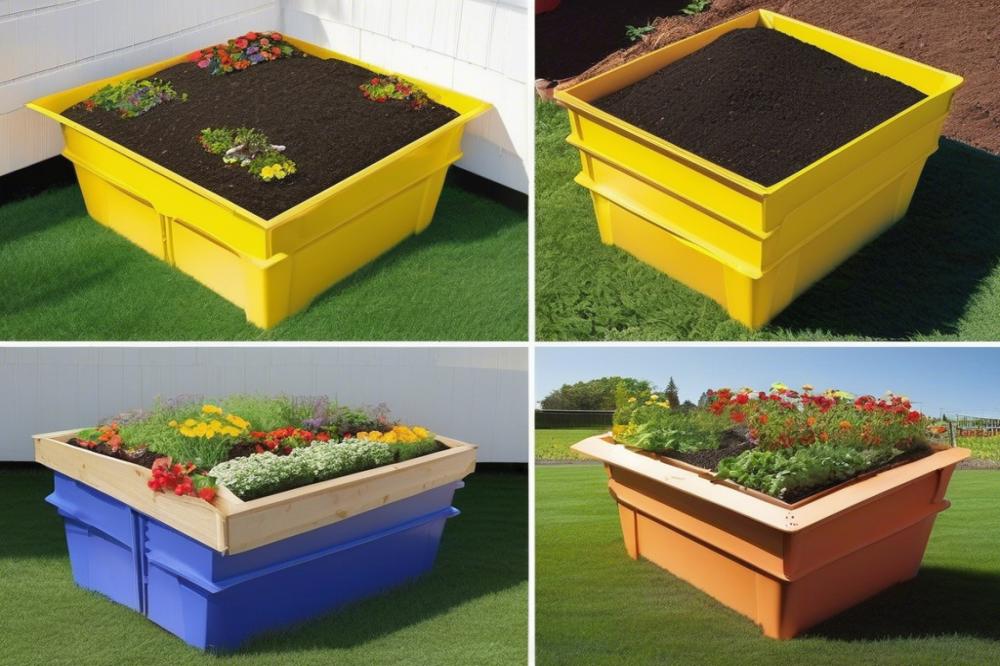

Steps to Set Up Composting Bins in School Gardens
Starting a composting program is a rewarding initiative. First, schools should identify a suitable location for composting bins. That spot must be accessible for students and staff, preferably near the garden. Next, select the right type of bin. Consider bins that are easy to use and maintain. After securing the bins, gather organic waste like fruit scraps, vegetable peels, and yard trimmings. Establish clear guidelines for what can be composted. Unwanted items like meat or dairy should be avoided. This creates a healthier compost mixture.
Educational Curriculum Integration with Hands-On Learning
Integrating composting into the curriculum enhances environmental education. Teachers can create lessons around soil health and the benefits of recycling organic waste. Science classes can explore decomposition processes while math classes might measure compost temperatures. This approach ensures that students grasp theoretical concepts practically. Schools can design gardening projects where students actively manage the compost bins. Engaging students in hands-on learning transforms lessons into real-world applications. They will witness firsthand how organic waste turns into nutrient-rich soil.
Strategies for Engaging Students in Composting Activities
Student engagement is crucial for the success of composting initiatives. Organizing workshops can spark interest in eco-friendly practices. Invite local environmental experts to discuss composting benefits and sustainability. Field trips to community gardens can inspire students and deepen their understanding of waste management. Establishing a composting club can also encourage teamwork and responsibility. Students might monitor the compost, track progress, and report findings to the school community. Celebrating milestones and achievements fosters a sense of pride and ownership. This involvement strengthens community ties while promoting sustainable awareness.
Community Involvement and Student Engagement
The role of parents and the community is crucial in supporting school composting efforts. When parents understand the benefits of composting, they can help reinforce these ideas at home. Awareness can grow through simple conversations during car rides or at the dinner table. Community support helps schools create a positive and engaging environment.
Projects and events can promote student involvement in fun ways. School gardening initiatives often tie directly into composting practices. These hands-on learning experiences excite students about environmental education. Organizing “Waste-Free Lunch Days” can add a fun challenge for students. They can learn about recycling while competing to produce the least amount of waste.
Collaborative projects with local organizations can enhance waste management efforts. Partnerships with community groups may lead to workshops about composting. These workshops provide valuable knowledge and hands-on experiences. Local businesses can sponsor events, providing resources or incentives for students. Such teamwork fosters a sense of belonging and responsibility.
School composting programs can create advocates for eco-friendly initiatives among students. Engaging kids in discussions about soil health helps them realize its importance. When children actively participate, they form a deeper connection to their environment. Programs that involve everyone ensure that the lessons learned extend beyond the classroom.
Involving the community in these activities reinforces the message of sustainable practices. Local environmental agencies might supply educational materials or volunteers for events. Parents can help lead projects, ensuring a rich learning experience. Building these connections amplifies the impact of composting education and fosters stronger community ties.
Challenges and Solutions
Implementing composting systems in schools can present various challenges. First, there’s the issue of maintaining student interest. Kids often need excitement to engage. They may view composting as just another chore. Educators can enhance enthusiasm by linking this process to school gardening activities. Making it a part of outdoor learning can spark curiosity.
Another hurdle involves logistics. Limited space can restrict where compost bins are placed. Some schools may struggle to integrate these systems effectively into existing waste management practices. Creating a clear plan helps. Positioning bins in visible areas boosts accessibility. This encourages more participation from students and staff alike.
Some educators worry about odors or pests. Such concerns can deter schools from starting composting programs. However, turning food scraps into valuable compost promotes soil health. Proper maintenance is key. Regular turning of the compost and covering it can minimize smells and prevent unwanted visitors.
Community involvement plays a central role. Schools can connect with local waste management organizations. Collaborations can lead to workshops on organic waste recycling. What’s more, bringing in parents or community members fosters student engagement. This helps to build a wider network of support for eco-friendly initiatives.
Training students is essential for long-term success. Hands-on learning experiences make the process enjoyable. Workshops that teach about composting benefits can deepen understanding. Students can take ownership of the project, making it feel personal. This ownership encourages responsibility toward the environment.
Maintaining momentum takes creativity. Celebrating successes, no matter how small, keeps spirits high. Sharing outcomes with the school community through newsletters can build excitement. This creates a sense of pride in reducing waste and enhancing sustainability. Engaging students in ongoing recycling campaigns can reinforce lessons learned about environmental education.
Addressing these challenges isn’t just about overcoming obstacles. Schools can create a thriving culture of sustainability. With the right strategies, composting can become a rewarding experience for everyone.
Final Thoughts on Composting in Schools
Bringing composting bins to schools is more than just an eco-friendly trend; it’s a powerful way to instill environmental education in our young learners. Each bin creates an opportunity for students to gain hands-on experience with sustainability. They learn not only about waste reduction but also about the natural processes that enrich our soil. Such practical lessons can foster a lifelong commitment to caring for the environment.
With these initiatives, schools can promote active participation among students. When kids engage in school gardening, they see their efforts come to life—literally! Watching food scraps transform into nourishing compost lets them grasp complex concepts in an approachable manner. Moreover, educators can use this as a springboard for lessons on ecosystems, nutrition, and responsibility.
Community involvement can amplify the impact of these programs. Parents, local businesses, and volunteers can unite to support school gardening projects. Together, they can create gardens flourishing with produce that benefit not only the students but the broader community. Everyone has a role in nurturing these sustainable practices.
Schools are encouraged to adopt composting now. By doing so, they will take significant steps toward teaching students essential values of sustainability. Let’s work together to create vibrant, eco-conscious learning environments that inspire future generations.

